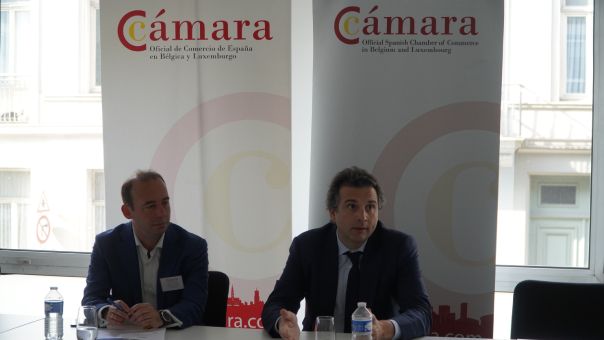Breakfast-debate held with David González Martínez, Counsellor for Science and Innovation at the PermRep of Spain to the EU
On Tuesday 27th June, the Official Spanish Chamber of Commerce in Belgium and Luxembourg held a breakfast-debate with David González Martínez, Counsellor for Science and Innovation at the Permanent Representation of Spain to the EU, who spoke on “Spain’s mission in the framework of European technological innovation”, in the framework of the Chamber’s programme “In the run-up to the Spanish Presidency”.
After a brief introduction by the President of the Chamber, Pablo López-Álvarez, the speaker opened his speech by briefly explaining the situation of the Council, being the field of research a shared competence with the European Union.
In addition, he emphasised the importance of the extension of programmes such as Horizon Europe, oriented towards research and innovation, and PRIMA, Mediterranean collaboration between European countries and North and East Africa.
David then shared the priorities in science and innovation during the next six months of the Spanish Presidency, beginning with the legislative area, where he highlighted the impact of science on the political decision-making process and the importance of the “institutionalization of science”, providing the example of COVID 19 and semiconductors.
The second priority is to dedicate special attention to innovation and ecosystem research, pointing out the “synergy between funds and the interest in considering the dimensions of the regions”. The third and final priority is the analysis of Member States’ investments and implementations of Next Generation EU reforms about the recovery and resilience with the aim of identifying gaps in funding.
David also stated that he is “open to new initiatives from European Union” and underlined the “good relationship with the Belgian Presidency”, which will replace them. He concluded his intervention by outlining some of the dates for meetings to be held during the presidency in various Spanish cities, including Tenerife, Granada and Madrid.
The presentation was followed by a Q&A session in which the attendees’ raised questions on topics such as cooperation with the private sector, the importance of the strategic approach to funding and the institutionalization of science, among others.


